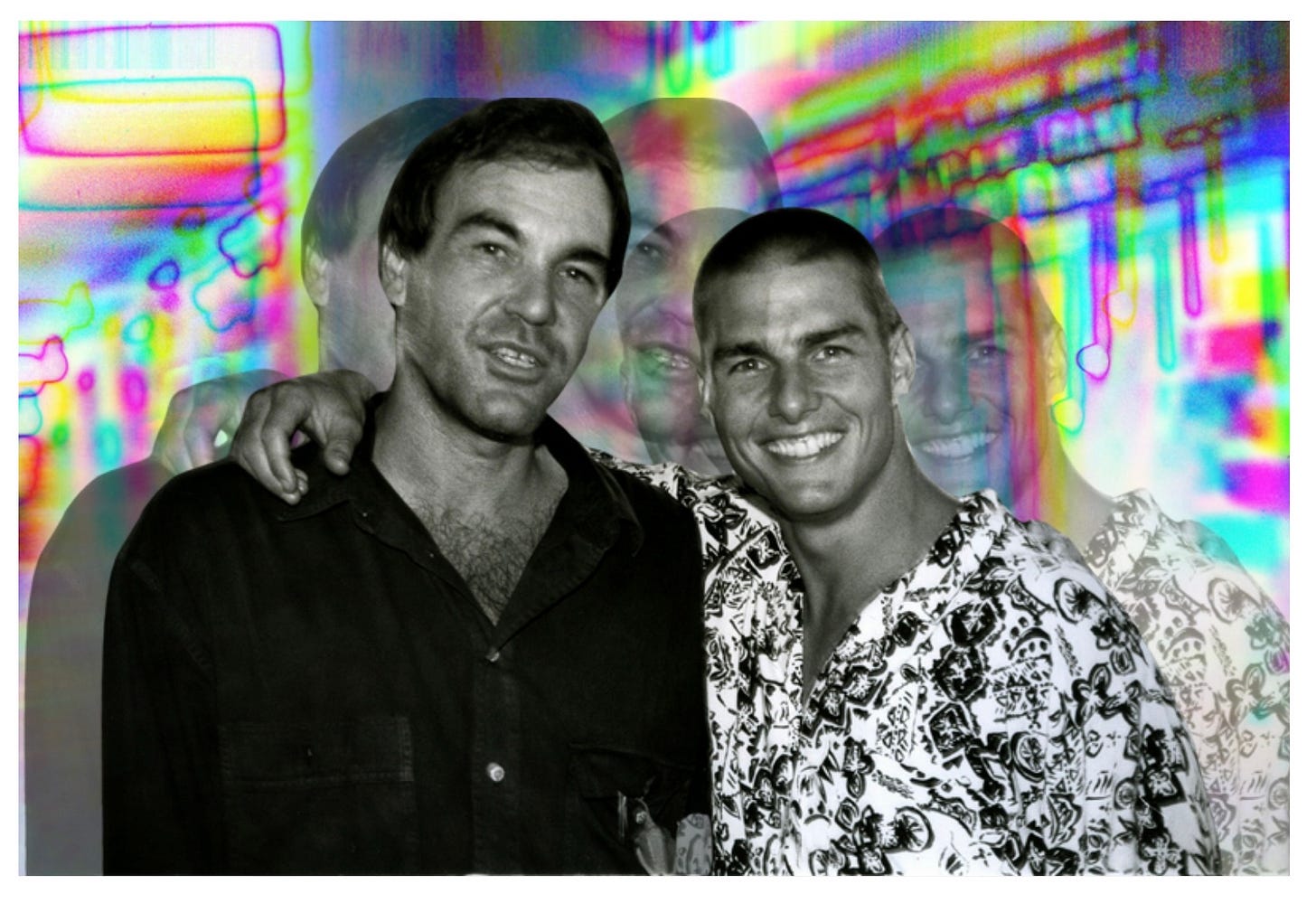Oliver Stone's Political Films Were Massive Hits. Why Did They Vanish?
His brand of incendiary onscreen stories are now radioactive — relegated to history — as fear grips the market: 'Let’s hope that the safe movies don’t win out'

Matthew Frank is an Ankler staffer. He’s previously written about gambling on Hollywood in online prediction markets, the rise of selective piracy to market movies to Gen Z and screenwriting professors’ tough love for students who want to break into the business.
This Ankler Feature is a 14-minute read.
While working in a video store as a teenager, screenwriter Charlie Wachtel happened upon JFK, Oliver Stone’s 1991 political thriller about the Kennedy assassination. Wachtel calls watching the movie a “life-changing experience.” It was the film that lit his fire to go into screenwriting, and he wanted to write movies like that: “History with an attitude,” as he calls it.
“He had the kind of career that I aspired to have with his body of work,” Wachtel says of the now 78-year-old director. “He made films that got people talking, that could be used as a platform for conversation and discussion, and you don’t necessarily have to agree with it, but you can’t deny are compelling in making you rethink a lot of the things that you already knew — or thought you already knew.”
Wachtel and his writing partner David Rabinowitz were in the same friend group growing up together in New Jersey.
When Wachtel attended American University in the mid-2000s (Rabinowitz went to Quinnipiac), he discovered a class called “Oliver Stone’s America.” Unlike his film courses, this was a history seminar that analyzed Stone’s films as historical documents representing fraught periods in American history, like the Vietnam War or JFK’s assassination.
“I remember making sure I did everything in my power to arrive as early as possible when Oliver Stone visited the class,” Wachtel says. “I sat in the front row.” He remembers asking Stone if he thought theaters were going to survive.
Wachtel moved to L.A. after his 2008 graduation, and pursued screenwriting. After working an assortment of odd jobs, in 2015, he and Rabinowitz learned of a remarkable memoir by Ron Stallworth, a Black police officer who infiltrated the Ku Klux Klan and ultimately took down a chapter of the hate organization. They secured the rights to the book, titled Black Klansman, and attracted Jason Blum and Jordan Peele as producers. Spike Lee signed on to direct the film: BlacKkKlansman.
On Feb. 24, 2019, Wachtel and Rabinowitz won the Oscar for best adapted screenplay.
Yet, in today’s Hollywood, as studios and streamers run further and further away from a current political climate too surreal to have ever imagined, that movie —with its themes of white supremacy and extremist hate — now seems an anomaly, not the birth of what some imagined would be a renaissance of commercial, socially-conscious films making sense of a particularly fraught moment.
“It’s been more important than ever for financiers and studios to want to make sure that they’re making movies that are ‘safe,’” Wachtel says, “and obviously movies that are safe are not always the most interesting or talked about.”


